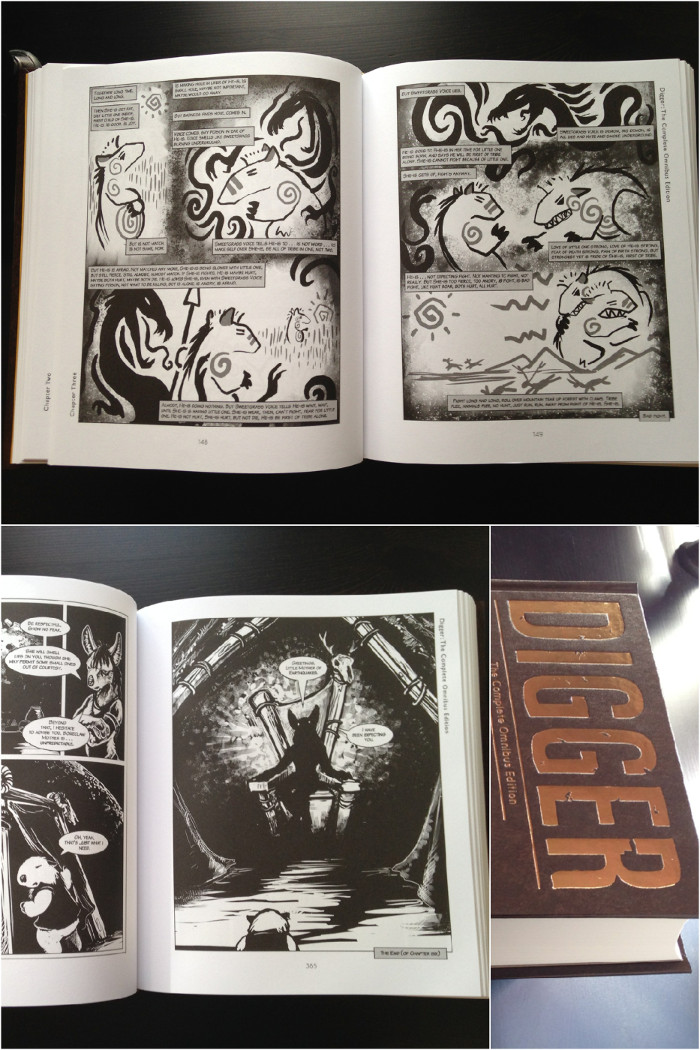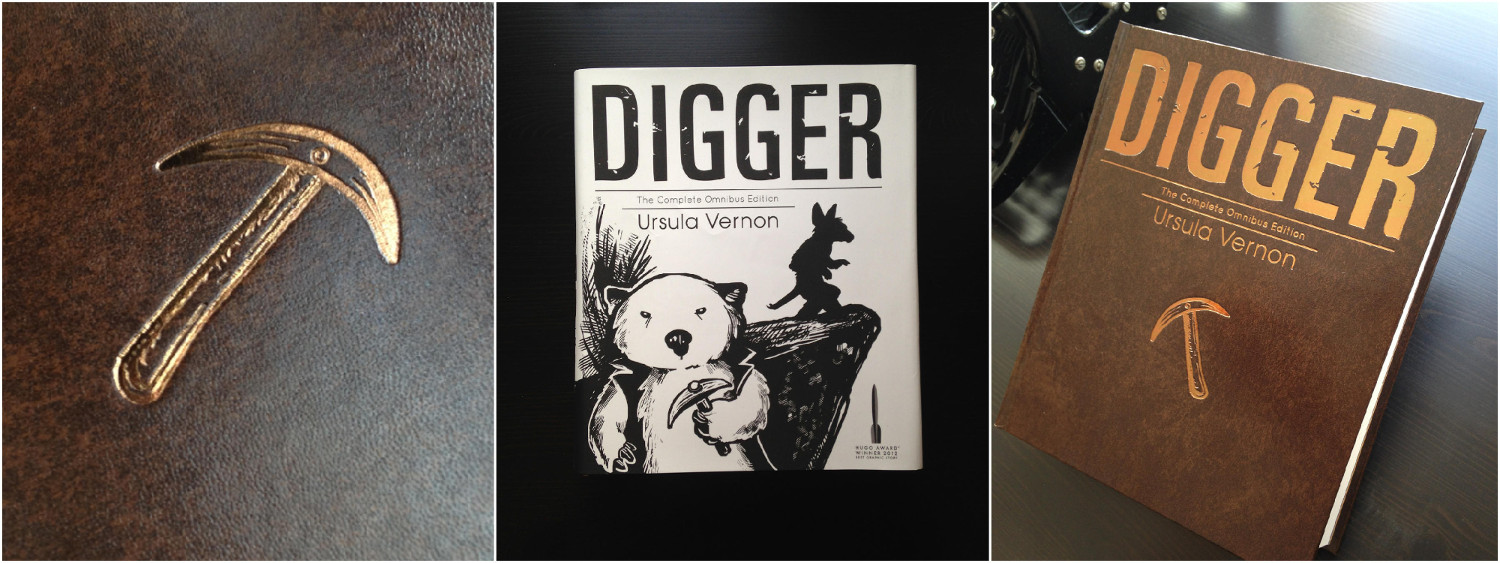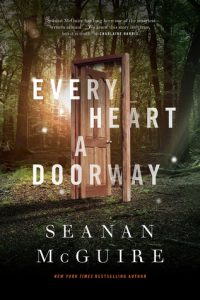I fell in love with Digger on the first pages of the comic, where the eponymous wombat heroine heads straight into trouble by doing what she does best: digging a tunnel. Alas, this particular tunnel was no masterpiece, so she gets lost and finds herself in a strange new and utterly wombat-free land. It took me a while to realize that Digger was a heroine (those wombat boobs are kind of hard to spot when you don’t expect them …), and I absolutely loved the fact that “it” turned out to be a “she”. A big share of the powerful, cool and odd chara cters of this graphic novel turned out to be a she. It’s a revelation to meet such a gathering of fine and engaging female leads in an adventure story, among them Grim Eyes (a warrior from a matriarchal hyena tribe), Murai (a destined but troubled human heroine) and Surka (a shrew with a new calling).
cters of this graphic novel turned out to be a she. It’s a revelation to meet such a gathering of fine and engaging female leads in an adventure story, among them Grim Eyes (a warrior from a matriarchal hyena tribe), Murai (a destined but troubled human heroine) and Surka (a shrew with a new calling).
Yes, that’s a lot of furries! They inhabit quirky and well-rounded societies; and against the bigger backdrop of the odd world Digger finds herself in (filled with useless oracular slugs and hero vegetables, among others), they seem like the most ordinary people whose lives are turned inside out.
Although Digger is a comic, there’s plenty of text, and most of it put a big smile on my face. Digger’s witty commentary on the events made me root for this practical, down-to-earth heroine. As she is hauled into a story of epic dimensions and – for a wombat – terrifying mythical and magical qualities, her deadpan comments keep everything grounded. Aren’t we all wombats here, far from our comfort zone and thankful for every remark to put things into perspective?
What good is a god that does not fossilize?
– Digger
Digger is indeed somehow reminiscent of Terry Pratchett’s Small Gods, and, while we’re at it, also of Jeff Smith’s Bone (in structure and premise). Both of these could inspire a love letter of their own, so for me that’s a big fat bonus. Snarky jokes, witty comments on religion, mythic overtones and sheer epicness aside, Digger goes right into the feels with its unusual cast of characters. It explores themes like domestic violence and ethical education in a graceful, unobtrusive way – and that’s something I have rarely seen done in fiction.
I stumbled upon Digger quite late – it had been published completely then (so I could just tear through reading day and night), it had won its Hugo Award, and it had – to my great disappointment – already finished its crazily successful crowdfunding campaign for a printed omnibus edition (which I still got afterwards, so not all was lost …). I’ve read it multiple times since then. After the first rush of excitement, I’m now able to fully appreciate what an effort it must have been to finish this huge, unwieldy thing. At nearly 900 pages, you need quite a solid table to read the omnibus edition. If they would offer a digital edition someday, I’d go for it immediately, as much as I love to have the big tome with the pickaxe on my shelf.
But back to the travails of the fabulous Ursula Vernon, creator of Digger. It was published as a webcomic, an unplanned work of someone with nearly no experience in the graphic novel field (see this old, old interview). The way the story unfolds, this is quite unbelievable. Kudos to Ursula, for pulling it off over the course of years without getting tangled up in the plot. Yes, there are some meandering parts of the story, but they fit into the whole quirky style and add depth instead of dragging on.

So, Digger. One of the best things that happened in my life. It showed me how strong female characters could really look like and how the best thing in fantasy still is to get thrown into a world where anything can happen. Not that Digger would approve of it. But I do, a lot, and love this marsupial fiction with all my heart. Or with all my liver, if you’re more inclined to the hyena side of life.
Digger (Ursula Vernon)
Webcomic: 2004 – 2011: start reading here
Omnibus: Sofawolf Press 2013
Paperback (6 volumes): Sofawolf Press 2005-2011



